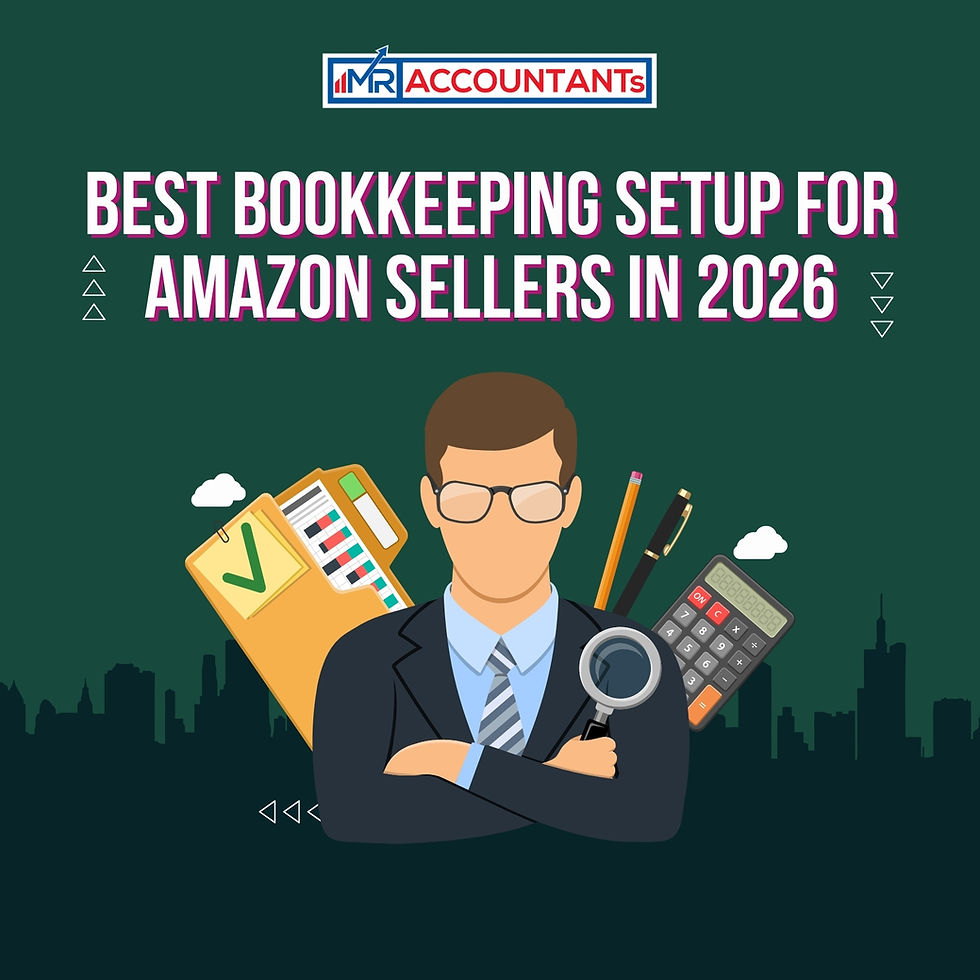Common Misconceptions About Virtual CFOs Debunked
- Prothom
- Jun 30, 2025
- 4 min read

In the fast-moving world of modern business, financial leadership has become more accessible than ever, thanks to Virtual CFOs (vCFOs). These remote financial experts offer strategic guidance without the high costs and commitments of full-time CFOs.
Yet despite their growing popularity, many people still misunderstand what a Virtual CFO is or assume they’re just a glorified accountant. The reality? A Virtual CFO can bring transformational value to your business, whether you’re a startup, a scaling e-commerce brand, or a mid-sized company preparing for growth.
Let’s bust some of the most common myths about Virtual CFOs and explain why they might be exactly what your business needs.

❌ Misconception 1: “A Virtual CFO Is Just an Outsourced Accountant”
✅ Reality: A Virtual CFO does far more than crunch numbers.
While bookkeepers and accountants focus on day-to-day transactions, tax filing, and compliance, Virtual CFOs take on a strategic leadership role. They work alongside founders and executive teams to make sense of financial data, plan, and build a stronger financial future.
Key areas a Virtual CFO handles include:
Financial forecasting and modeling
Budget creation and tracking
Performance analysis and KPIs
Pricing and profitability strategies
Investor reporting and fundraising support
Financial systems and process improvements
In other words, Accountants manage the past. Virtual CFOs guide the future.

❌ Misconception 2: “Virtual CFOs Only Work with Startups or Small Businesses”
✅ Reality: vCFOs are useful for companies of all sizes and stages.
While early-stage startups often rely on Virtual CFOs to set up their financial foundation, established companies also benefit from their insight, especially during times of change.
A vCFO can help businesses that are:
Preparing for funding or acquisition
Expanding into new markets
Struggling with cash flow
Needing financial clarity during rapid growth
Lacking internal financial leadership
The value of a vCFO isn’t tied to company size; it’s tied to the need for strategic financial oversight.

❌ Misconception 3: “Remote Means Less Effective”
✅ Reality: Remote doesn’t mean disconnected, it means digitally empowered.
In today’s business environment, Virtual CFOs are often more responsive and effective than traditional in-house finance teams. They use powerful tools like:
Cloud accounting platforms (QuickBooks, Xero, NetSuite)
Real-time dashboards for financial KPIs and cash flow tracking
Video conferencing for regular meetings and check-ins
Secure document-sharing tools to collaborate on financials
Virtual CFOs are also experts in systemizing workflows, automating reports, streamlining invoicing, and ensuring you get insights faster, not later.
With clear communication protocols, shared cloud access, and integrated systems, a Virtual CFO can offer real-time support, not just monthly reports.
Many businesses report that their virtual CFO is more accessible, more data-driven, and more proactive than traditional hires.

❌ Misconception 4: “It’s Too Expensive for My Business”
✅ Reality: Virtual CFOs are designed to be cost-effective and scalable.
Hiring a full-time CFO can cost anywhere from $150,000 to $300,000+ per year, depending on experience and location, not including bonuses, benefits, or office space.
Virtual CFOs, on the other hand, offer:
Flexible pricing models (hourly, retainer, project-based)
No extra costs for office setup or employee benefits
Scalable involvement based on your business stage
This means you get executive-level financial expertise at a fraction of the cost, and only pay for what you need.
But the real value is in what they help you achieve:
Improved profitability
Better cash flow
Smarter decision-making
Fewer costly mistakes
Increased investor or lender confidence
For growing companies, a Virtual CFO isn’t a cost, it’s a strategic investment with tangible ROI.

❌ Misconception 5: “They’re Just Temporary or Project-Based”
✅ Reality: A Virtual CFO can be a short-term consultant or a long-term strategic partner.
Yes, some businesses bring in a vCFO to handle specific needs like:
Cleaning up finances for due diligence
Preparing financials for investors or loans
Migrating to new accounting software
Designing forecasting models
But many businesses retain vCFOs long-term, treating them as ongoing advisors who help them:
Plan annual budgets
Track monthly performance
Lead financial meetings
Set and evaluate financial goals..
Build internal finance teams
As your business grows, a Virtual CFO can scale with you, increasing their involvement or training internal teams while still offering guidance from the top.
For many founders, a Virtual CFO becomes a trusted, long-term ally, providing consistency without the cost or complexity of a full-time hire.

❌ Misconception 6: “My Business Isn’t Big or Complex Enough to Need One”
✅ Reality: If you’re making financial decisions, you need strategic financial insight.
You don’t need to be managing millions to benefit from a Virtual CFO. The earlier you bring in financial leadership, the easier it is to build a business that:
Maintains cash flow stability
Avoids tax and compliance pitfalls
Prices its products/services correctly
Scales without financial chaos
Prepares for investment or exit
Virtual CFOs help lay the groundwork for long-term success before things get complicated or messy.
So, What Does a Virtual CFO Do?
Here’s a quick rundown of what most vCFOs typically offer:
🔹 Budgeting & Forecasting
🔹 Cash Flow Management
🔹 Business Performance Tracking
🔹 Strategic Financial Planning
🔹 Pricing Strategy & Profit Optimization
🔹 Fundraising & Investor Relations
🔹 Financial System Implementation
🔹 Tax Planning & Compliance Oversight
🔹 Board Reporting & Executive Support
In essence, they connect your vision with your numbers and ensure your business grows with clarity and control.
Final Thoughts
Virtual CFOs aren’t a trend; they’re part of the new normal in business finance. As companies become more agile, remote, and tech-driven, the need for flexible, experienced financial leadership is only increasing.
Whether you’re just getting started, hitting growth milestones, or preparing for major financial decisions, a Virtual CFO can help you move forward with confidence, insight, and direction.
Don’t let old myths get in the way of smart financial leadership. The right Virtual CFO can be a game-changer, no office required.
.png)



Comments